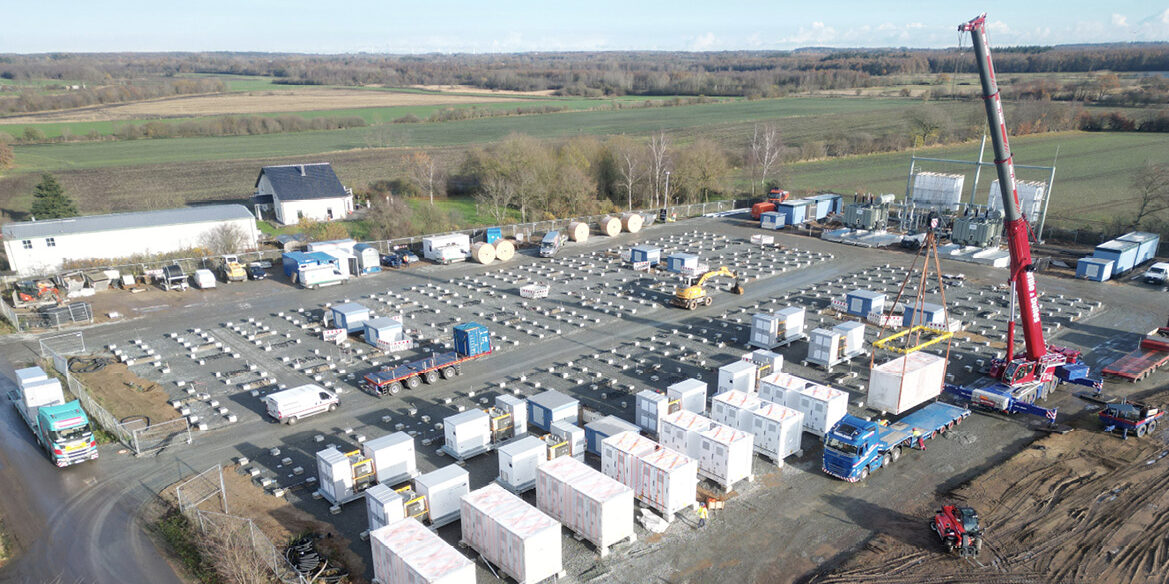Policy
Germany solar industry association pushes for binding 2030 target of 100 GWh of battery storage
Today’s installed capacity would have to quadruple over the next five years to attain that goal. The association has also made recommendations on how storage expansion can be accelerated and can support the energy system.

By
Sandra Enkhardt
Oct 07, 2025
Distributed
Grid-scale
Markets
Policy
Projects & Applications

There is a lot of momentum in large-scale battery storage systems. More projects could emerge but grid access is often a bottleneck. | Image: Eco Stor
The role of battery storage in the energy system, and its contribution to the success of the energy transition has so far received little attention at federal level and has not been considered in planning. The best example of that neglect is the report on the security of supply published by the Federal Network Agency a month ago, which did not adequately consider the current dynamics of large-scale battery storage.
As a result, the German Solar Industry Association (BSW-Solar) has called on the federal government to set a binding 2030 expansion target for battery storage. A minimum 100 GWh should be stipulated in law, BSW-Solar says.
pv magazine research of the market data register indicates there are 2,143,665 battery storage systems in Germany. They have a gross scale of 15.67 GW/24.13 GWh. This year alone, more than 400,000 storage systems, with almost 5.5 GWh of capacity, have been added.
BSW-Solar linked its battery target call to yesterday’s Handelsblatt Energy Storage 2025 conference, which was set to bring together representatives from industry, grid operations, energy supply, and technology to debate the role of electricity storage in the energy system transformation.
The solar trade body has also published recommendations on how the federal government can drive faster, more system-friendly storage expansion by accelerating and simplifying grid connections. Some 64% of respondents to an ongoing industry survey held by BSW-Solar urgently want improved grid access.
BSW-Solar said the introduction of non-binding grid connection information alone could increase grid transparency and enable inquiries to be made more specifically. One survey respondent said binding reservation options for grid capacity should also reflect project progress , to improve planning and investment security for developers.
The industry association wants mandatory digital grid connection applications, standardization of grid connection process deadlines, and penalties for non-compliance. Preferential building regulations for large-scale battery storage systems – announced in the coalition government agreement – must be implemented quickly, BSW-Solar says, and 45% of respondents to its survey believe grid-fee exemptions for electricity purchased from storage facilities should be extended beyond 2029. The same number of respondents want politicians to clearly implement multi-use rules for the flexible use of storage systems with green and gray electricity.
The membership body also wants Germany’s estimated 23 GWh of home solar-energy-storage systems – which BSW-Solar estimates were installed by the end of July – used to back the energy system.
“They reduce the need for reserve power plants and the scope of grid expansion, reduce curtailments of solar and wind power plants and their subsidy requirements, stabilize electricity prices on the stock exchange, and make a decisive contribution to bridging periods of low electricity production,” said BSW-Solar Managing Director Carsten Körnig.
For those reasons, BSW-Solar says Germany’s regulatory framework needs further refinement to unleash the potential of such domestic storage facilities.
From pv magazine Deutschland.
ess-news.com |






